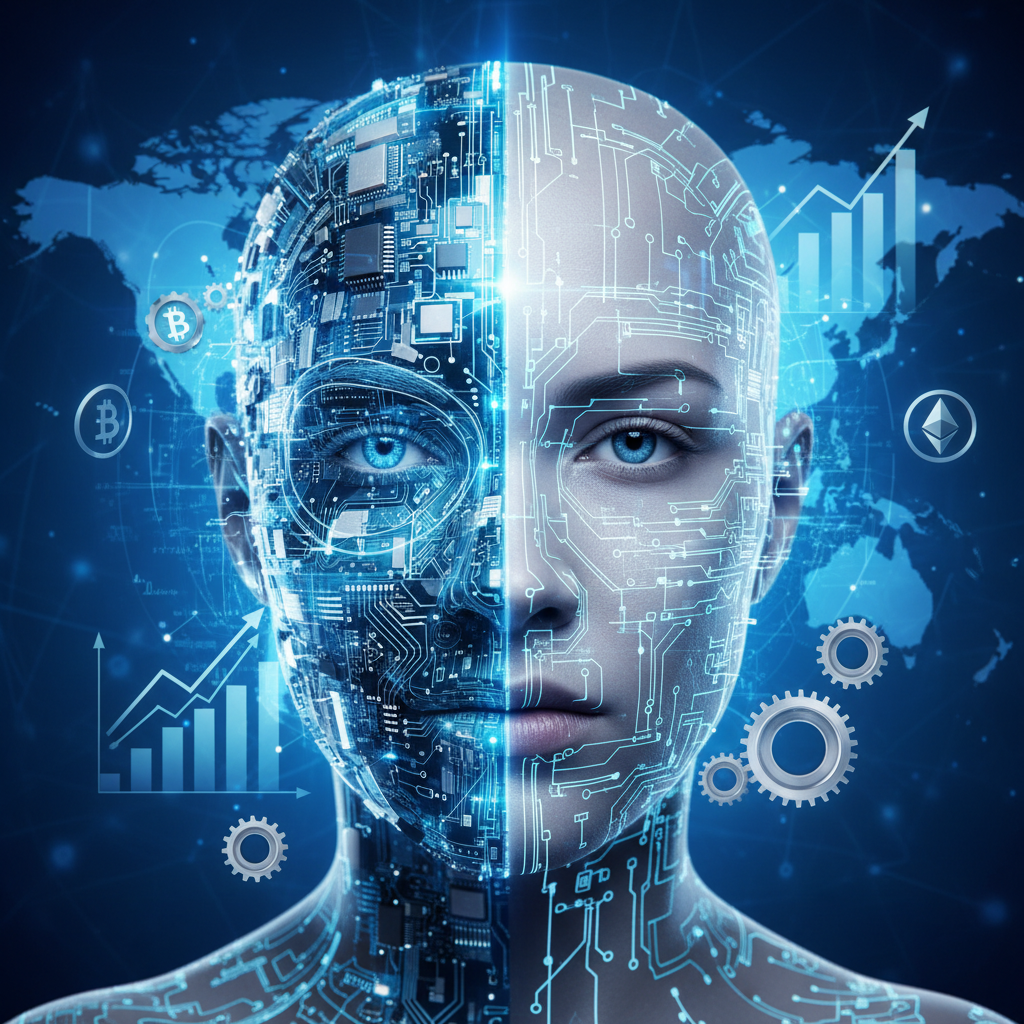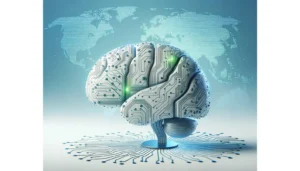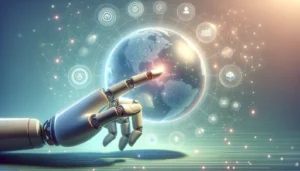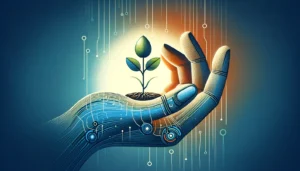Economic impact of artificial intelligence
Artificial intelligence is revolutionizing the global economy, driving profound changes in companies, governments and societies. Its integration promises unprecedented economic growth.
It is expected that AI could increase global GDP by up to 15% in the next decade, comparable to the industrial revolution of the 19th century. This transformation affects all productive sectors.
Furthermore, AI not only expands the economy, but optimizes processes and opens new business opportunities. It is a key driver for sustainable development and international competitiveness.
Global GDP growth thanks to AI
The adoption of artificial intelligence has the power to significantly raise global economic growth. This is due to improvements in efficiency and the creation of new markets.
According to PwC, AI can increase global GDP by 15% in ten years, boosting productivity and facilitating disruptive innovations in various sectors.
This growth is reflected in the generation of added value, technological development and the expansion of access to services, expanding global wealth and promoting the digital economy.
Transformation in business productivity
AI is changing the way companies operate, allowing processes to be automated and decision-making accelerated with accurate, real-time data.
Manufacturing, finance and commerce companies improve efficiency and cost reduction thanks to the implementation of intelligent systems that optimize resources.
This transformation encourages constant innovation and the creation of new products, facilitating rapid adaptation to the market and strengthening business competitiveness.
Applications of artificial intelligence in key sectors
Artificial intelligence is driving a revolution in fundamental sectors, transforming processes and services with innovation and advanced automation. Its impact is observed in critical areas such as manufacturing, finance, health and commerce.
These applications allow companies to improve their efficiency, reduce errors and create new business models that redefine the market. AI becomes an engine of global growth and competitiveness, changing the economic and social landscape.
Furthermore, the integration of AI in different industries facilitates mass customization, logistics optimization and advanced diagnostics, opening up a vast range of opportunities and challenges for the near future.
Automation in manufacturing and financial services
In manufacturing, AI automates production lines with intelligent robots that optimize resources and increase the quality of the final product, reducing operating times and costs.
Financial services use AI to detect fraud, analyze risks and personalize products, improving security and efficiency in financial management.
This automation integrates machine learning to predict failures and maintain systems, as well as facilitate real-time financial decisions based on large volumes of data.
Innovation in healthcare
AI revolutionizes healthcare through more accurate diagnostics with image analysis and clinical data evaluation, helping to detect early diseases.
Intelligent technologies personalize treatments and improve patient monitoring, increasing the efficiency and quality of care offered.
Additionally, AI facilitates medical research by accelerating the development of drugs and therapies, as well as optimizing hospital management for better use of resources.
Reconfiguration of trade and new business models
Commerce is transformed with AI by personalizing the customer experience through predictive analytics and real-time recommendations, increasing loyalty and sales.
Business models evolve towards intelligent digital platforms that integrate logistics automation, inventory optimization and customer service through chatbots.
This reconfiguration opens space for disruptive innovations and the emergence of hybrid sectors, enhancing competitiveness and adaptability to globalized markets.
Labor and social consequences of AI
The implementation of artificial intelligence generates profound social and labor changes, affecting the employment structure and social dynamics at a global level.
While AI creates new job opportunities, it also poses significant challenges due to automation that can eliminate certain traditional jobs.
It is essential to understand these impacts to design policies that ensure a fair and equitable transition in the labor market.
Generation and disappearance of jobs
AI drives the creation of positions in the development, management and maintenance of smart technologies, generating opportunities in emerging sectors.
However, automation leads to the disappearance of routine and manual jobs, especially in industries such as manufacturing and services.
This process requires a constant adaptation of human capital with continuous training and updating of skills to face new requirements.
Furthermore, the coexistence between traditional jobs and AI-based roles can generate inequalities and polarization in the labor market.
Challenges and strategies for responsible implementation
The responsible implementation of artificial intelligence (AI) is essential to maximize its social and economic benefits. It is key to anticipate and mitigate associated risks.
Challenges include increasing polarization and economic gaps that can arise if AI adoption processes are not adequately regulated.
To achieve this, it is essential to develop strategies that promote equitable and transparent use of AI, guaranteeing its positive impact on all communities.
Risks of polarization and economic gaps
AI can widen the gap between countries and sectors, primarily benefiting those with access to advanced technology, leading to economic inequalities.
This polarization also affects the labor market, with the disappearance of routine positions and the creation of highly specialized jobs, making inclusion difficult.
Without adequate interventions, these dynamics can aggravate social inequalities, limiting the positive impact of AI and generating social and economic tensions.
Importance of education and training
Investing in technical education and training is essential to reducing gaps and preparing the workforce for the new roles created by AI.
Accessible and updated programs contribute to a more balanced distribution of opportunities in the digital economy.
Policies and trust for effective AI deployment
The formulation of clear and ethical policies is vital to foster citizen and business confidence in the adoption of AI technologies.
These policies should protect privacy, promote transparency, and ensure accountability for automated decisions.
Only strong regulatory frameworks and international cooperation can ensure that AI is deployed safely, equitably and sustainably.






